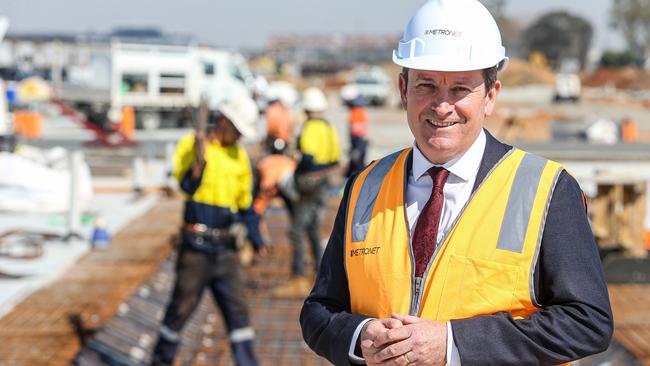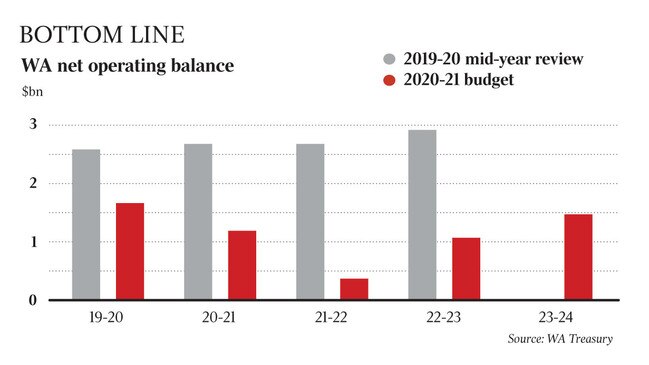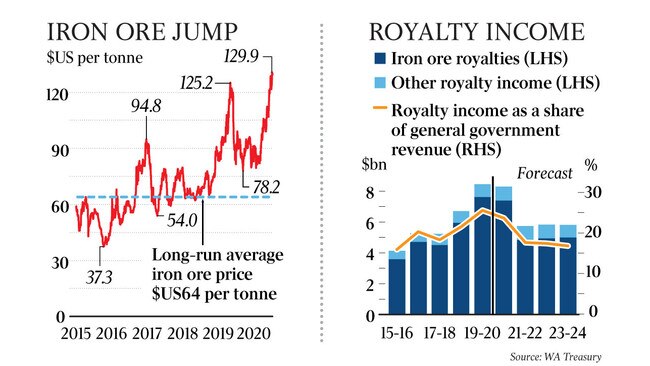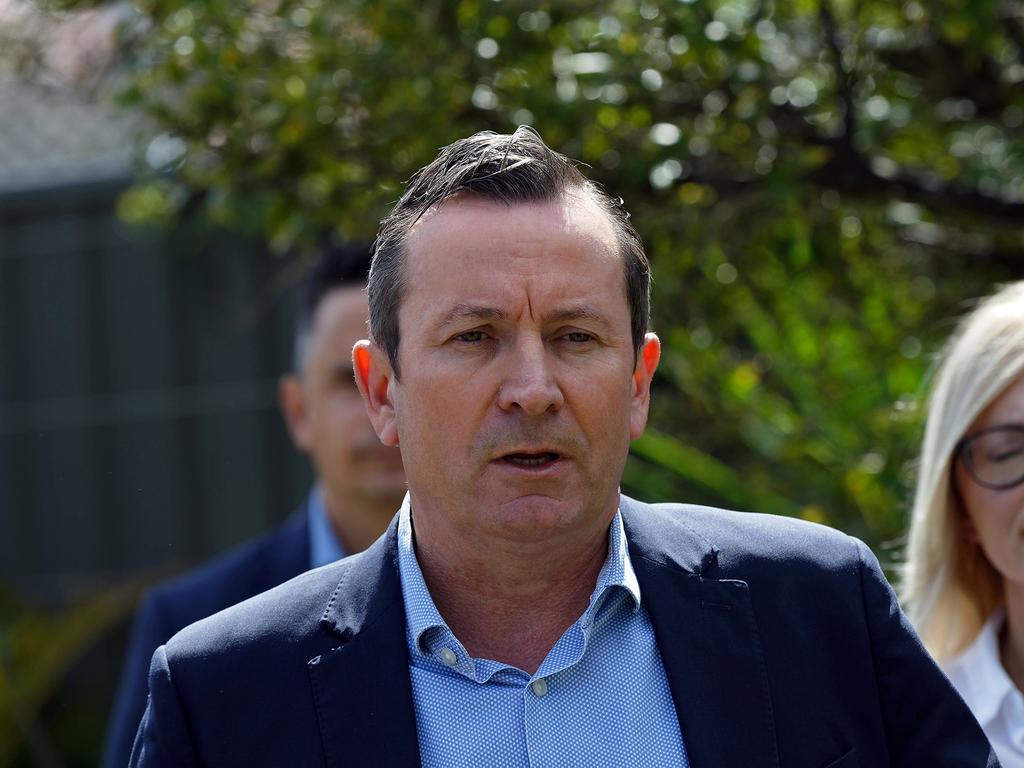West Australian budget: Locking down a budget surplus
A soaring iron ore price, GST revenues and the hard border policy has propelled Western Australia to a surplus.

A soaring iron ore price, a larger share of GST revenues and the contentious hard border policy has propelled Western Australia to a surplus in 2020, paving the way for a multi-billion-dollar infrastructure splurge ahead of next March’s election.
As the other states and the federal government rack up massive debts trying to weather the economic impacts of the coronavirus pandemic, West Australian Premier Mark McGowan and his Treasurer, Ben Wyatt, officially unveiled their plans to use the state’s latest iron ore windfall to splash out on the biggest public infrastructure spending in state history and another generous wave of household bill relief.
The government has formally abandoned its long-held goal of reducing the state’s debt in the longer term, confirming it will take on billions in new borrowings in the years ahead.
Mr Wyatt defended the delivery of a budget surplus in the middle of an economic crisis, saying the state needed to maintain firepower in case it experienced a second wave.
“It’s not about how much you spend, it’s how you spend it,” he said.
“Be it around state final demand, property, business, payroll, we have the best economic data of any state in the nation and that highlights that we’ve got it right.
“The WA experience of the coronavirus is very different to that of Victoria and NSW, and the budget highlights that.”
Josh Frydenberg told The Australian that all states and territories should be spending more to support their communities, nominating payroll tax relief and additional funding of social housing as two areas for focus.

“The Morrison government has dug deep to provide a record level of economic support to Australians during this crisis,” the federal Treasurer said.
“It’s time the states put their hands in their pockets, too.”
Scott Morrison called on Mr McGowan and other premiers to pour more resources into the COVID recovery, saying the federal government was not the only authority needed to jump-start the economy.
Surging iron ore prices helped WA collect a record $8.45bn in royalties last financial year, almost double the average of recent years, as the state confirmed it expected a $1.2bn cash surplus for financial 2021.
The state will also receive billions of dollars in GST top-up payments from the federal government in the years ahead as part of the GST floor negotiated by the McGowan government soon after it came to power in 2017.
The top-up was worth $814m to WA last year and is forecast to deliver another $3.3bn over the next two years.
Previous iron ore windfalls had been counteracted by falls in the state’s share of the GST, although it is now guaranteed to keep at least 70c of each dollar of GST it generates.
WA — which pumped an estimated $17.3bn or $6660 per capita into the federation in 2019, more than any other state — is expected to continue to be the biggest source of cash for the country for years to come.
With the state relatively unscathed by the virus, the McGowan government will pour billions into projects around the state ahead of the state election in March.
About $27.1bn will be spent on infrastructure projects in the next four years.
The government’s willingness to increase the state’s debt is a far cry from 2017, when Labor leveraged WA’s collective debt shame to propel it back into power.
Bringing down debt had been the clear priority for Mr McGowan and Mr Wyatt, but that once rock-solid commitment has fallen by the wayside as the government — with one eye on boosting the state’s economy and another on the election — prepares to pump the windfall across the state.

The spending is expected to help the state’s economy grow by 1.25 per cent this financial year, following the 1.1 per cent growth recorded last year when WA was the only state to record a positive figure.
Electricity and water tariffs have been frozen and households will receive a $600 electricity credit as part of a $1bn assistance package.
Another 800 police will be recruited over the next four years, which Mr McGowan said would give the state the highest number of police officers per capita in the country.
“Our budget surpluses allow us to bolster our COVID-19 response and be best prepared to respond to an uncontrolled outbreak throughout the community if necessary,” Mr McGowan said.
The budget papers include an assumption that WA lifts its hard border with the rest of the country on April 1, mirroring the date used in Tuesday’s federal budget, but Mr Wyatt stressed the date was simply a guess by Treasury and did not represent policy.
Additional reporting: Joe Kelly








To join the conversation, please log in. Don't have an account? Register
Join the conversation, you are commenting as Logout